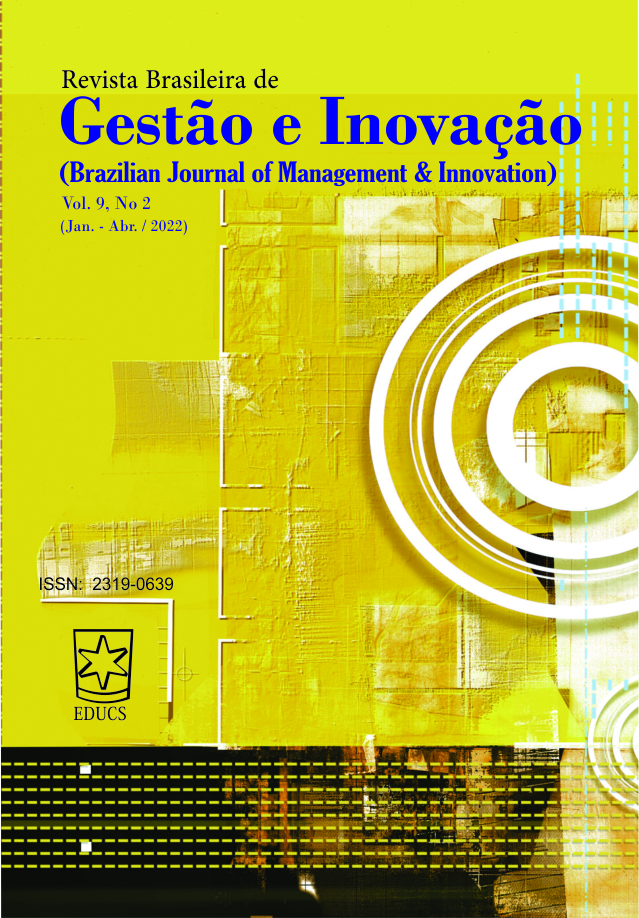AN INSTITUTIONAL THEORY INVESTIGATION: ANALYSIS OF THE MAIN TRENDS IN INNOVATION
DOI:
https://doi.org/10.18226/23190639.v9n2.06Keywords:
Organization, Legitimacy, Theory of InnovationAbstract
The present study aims to conduct a systematic review of the literature on Institutional Theory and innovation with a focus on investigating the respective trends and influences between the theories. Innovation is the use of new knowledge for the design of new products, services or processes, especially with an unprecedented character, in order to meet the current and future demands of industries, organizations and individuals. Globalization encouraged by innovations through development and diffusion, has increased mainly in the last two decades. The methodology used was a systematic literature review, the main articles were identified without a delimited time frame. The databases adopted were: Scopus, Web of Science and ScienceDirect. For that, filters were applied to the total portfolio of articles among the selected databases. Initially 106 articles were identified and 22 articles were selected to identify the trends and relationships between Institutional Theory and innovation. The results show the main trends in the literature between 2010 and 2020, the possible links between institutional theory and innovation, as well as the continents that carried out studies. Yet, it can be seen the main countries housing publications with impact factor on the approached themes and their locations. In addition, this study shows the most cited journals and presents an overview of Institutional Theory and Innovation. As future research, the authors suggest theoretical contributions on distinctions between formal and informal institutions, regulatory, normative and cultural-cognitive types of institutions.
Downloads
Published
How to Cite
Issue
Section
License
Copyright (c) 2021 Brazilian Journal of Management & Innovation

This work is licensed under a Creative Commons Attribution 4.0 International License.
The author must guarantee that:
- there is full consensus among all the coauthors in approving the final version of the document and its submission for publication.
- the work is original, and when the work and/or words from other people were used, they were properly acknowledged.
Plagiarism in all of its forms constitutes an unethical publication behavior and is unacceptable. Revista Brasileira de Gestão e Inovação has the right to use software or any other method of plagiarism detection.
All manuscripts submitted to RBGI - Revista Brasileira de Gestão e Inovação go through plagiarism and self-plagiarism identification. Plagiarism identified during the evaluation process will result in the filing of the submission. In case plagiarism is identified in a manuscript published in the journal, the Editor-in-Chief will conduct a preliminary investigation and, if necessary, will make a retraction.
This journal, following the recommendations of the Open Source movement, provides full open access to its content. By doing this, the authors keep all of their rights allowing Revista Brasileira de Gestão e Inovação to publish and make its articles available to the whole community.
RBGI - Revista Brasileira de Gestão e Inovação content is licensed under a Creative Commons Attribution 4.0 International License.
Any user has the right to:
- Share - copy, download, print or redistribute the material in any medium or format, linking to RBGI site.
- Adapt - remix, transform and build upon the material for any purpose, even commercially.
According to the following terms:
- Attribution - You must give appropriate credit, provide a link to the license, and indicate if changes were made. You may do so in any reasonable manner, but not in any way that suggests the licensor endorses you or your use.
- No additional restrictions - You may not apply legal terms or technological measures that legally restrict others from doing anything that the license permits.
#RBGI







